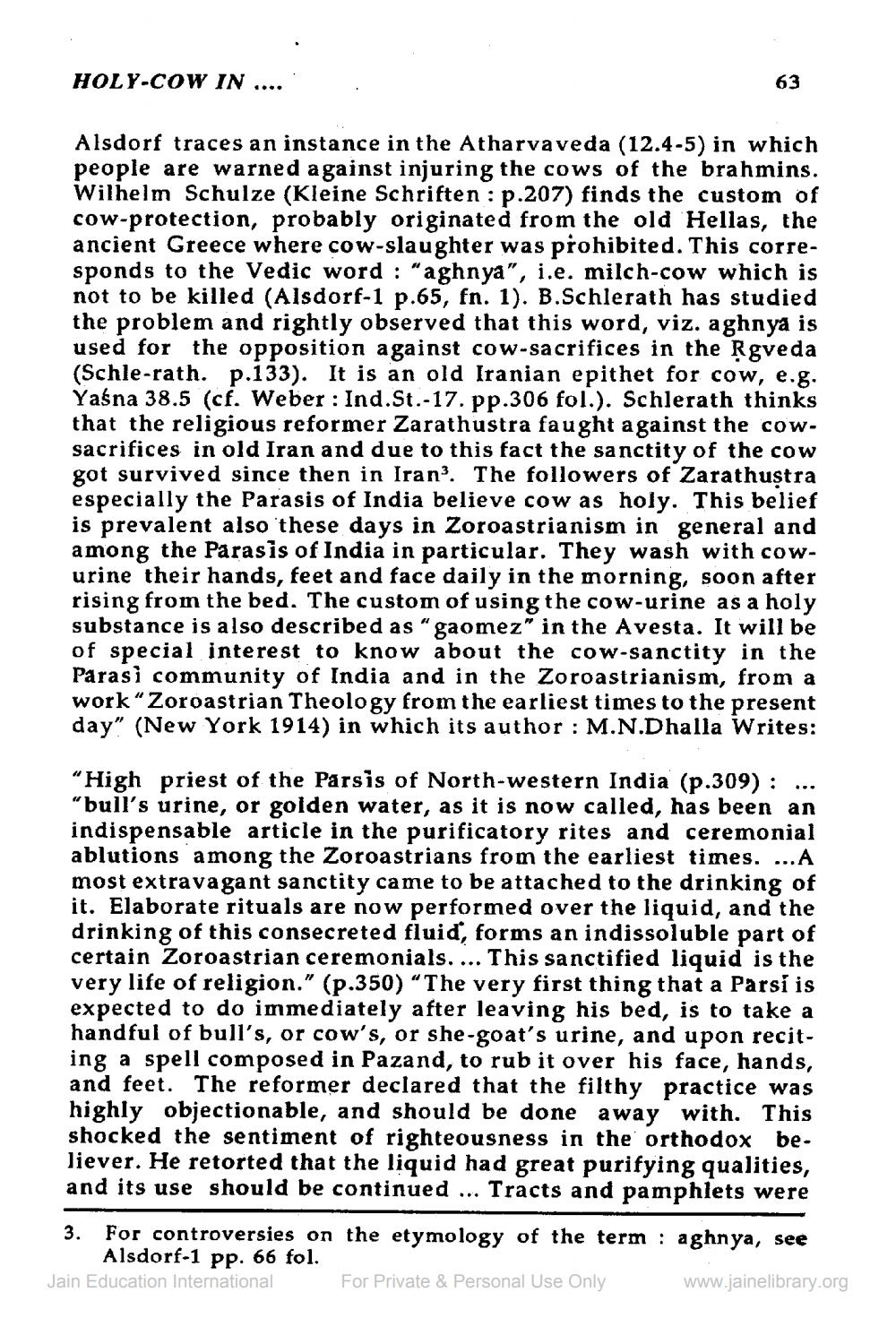________________
HOLY-COW IN ....
63
Alsdorf traces an instance in the Atharva veda (12.4-5) in which people are warned against injuring the cows of the brahmins. Wilhelm Schulze (Kleine Schriften : p.207) finds the custom of cow-protection, probably originated from the old Hellas, the ancient Greece where cow-slaughter was prohibited. This corresponds to the Vedic word : "aghnya", i.e. milch-cow which is not to be killed (Alsdorf-1 p.65, fn. 1). B.Schlerath has studied the problem and rightly observed that this word, viz. aghnya is used for the opposition against cow-sacrifices in the Rgveda (Schle-rath. p.133). It is an old Iranian epithet for cow, e.g. Yaśna 38.5 (cf. Weber: Ind.St.-17. pp.306 fol.). Schlerath thinks that the religious reformer Zarathustra faught against the cowsacrifices in old Iran and due to this fact the sanctity of the cow got survived since then in Iran. The followers of Zarathustra especially the Parasis of India believe cow as holy. This belief is prevalent also these days in Zoroastrianism in general and among the Parasis of India in particular. They wash with cowurine their hands, feet and face daily in the morning, soon after rising from the bed. The custom of using the cow-urine as a holy substance is also described as "gaomez" in the Avesta. It will be of special interest to know about the cow-sanctity in the Parasi community of India and in the Zoroastrianism, from a work“Zoroastrian Theology from the earliest times to the present day" (New York 1914) in which its author : M.N.Dhalla Writes:
“High priest of the Parsis of North-western India (p.309) : ... "bull's urine, or golden water, as it is now called, has been an indispensable article in the purificatory rites and ceremonial ablutions among the Zoroastrians from the earliest times. ...A most extravagant sanctity came to be attached to the drinking of it. Elaborate rituals are now performed over the liquid, and the drinking of this consecreted fluid, forms an indissoluble part of certain Zoroastrian ceremonials. ... This sanctified liquid is the very life of religion." (p.350) "The very first thing that a Parsi is expected to do immediately after leaving his bed, is to take a handful of bull's, or cow's, or she-goat's urine, and upon reciting a spell composed in Pazand, to rub it over his face, hands, and feet. The reformer declared that the filthy practice was highly objectionable, and should be done away with. This shocked the sentiment of righteousness in the orthodox be. liever. He retorted that the liquid had great purifying qualities, and its use should be continued ... Tracts and pamphlets were 3. For controversies on the etymology of the term : aghnya, see
Alsdorf-1 pp. 66 fol. Jain Education International For Private & Personal Use Only www.jainelibrary.org




